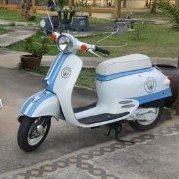Bequeathing condo to my son, need forex certificate
-
Recently Browsing 0 members
- No registered users viewing this page.
-
Topics
-
-
Popular Contributors
-
-
Latest posts...
-
31
THAILAND LIVE Thailand Live Sunday 24 August 2025
Two Lebanese Men Arrested on Koh Samui for Drugs Picture courtesy of SiamRath. Immigration police raided a restaurant on Koh Samui and arrested two Lebanese nationals, after discovering a stash of narcotics, bulletproof vest and unusual medical equipment hidden inside a safe. Full story:https://aseannow.com/topic/1370774-two-lebanese-men-arrested-on-koh-samui-for-drugs/ -
1
-
-
0
Crime Two Lebanese Men Arrested on Koh Samui for Drugs
Picture courtesy of SiamRath. Immigration police raided a restaurant on Koh Samui and arrested two Lebanese nationals, after discovering a stash of narcotics, bulletproof vest and unusual medical equipment hidden inside a safe. The raid took place at Buffalo Jungle Restaurant in Maret subdistrict, Koh Samui, under a search warrant issued by the Koh Samui Provincial Court. The operation was led by Pol Lt Gen Panumas Boonyalak, Commissioner of the Immigration Bureau, together with senior officers from the Surat Thani Immigration Division. The suspects were identified as Mr. Ehab Awara, 38 and Mr. Chady Raiden, 28, both Lebanese citizens. Officers seized multiple categories of illicit drugs, including ecstasy, methamphetamine, ketamine, cocaine and psilocybin mushrooms. Other items confiscated included small plastic bags, a digital scale and a bulletproof vest (classified as controlled military equipment). The search expanded to other rooms within the Buffalo Jungle restaurant complex, where officers discovered a large safe in a two-story building across from the main restaurant. Inside the safe, police found acupuncture needles, boxes, glass cups and vacuum cylinders used for cupping therapy treatments. Mr. Awara claimed to be a licensed doctor from abroad, asserting his qualifications to perform acupuncture and cupping therapy on tourists. However, authorities confiscated the medical equipment as evidence while investigating his credentials Initial urine testing revealed that Mr. Raiden tested positive for drug use and admitted to having taken narcotics the previous day. Mr. Awara, however, refused to provide a sample and was charged with disobeying an order issued by the Narcotics Control Board, in addition to other offences. The two men are now in custody pending further investigation and legal proceedings. Adapted by Asean Now from SiamRath 2025-08-24 -
85
BigC extra on klang
Yes, one of the 3 Big-Cs in town, and as you say now called Marina, at the bend on 2nd Rd, well before you get to the roundabout.....somewhat overshadowed by T21 these days. -
12
Ukraine Russia Rejects EU Troops in Ukraine Amid Trump’s Veiled Threats
They all know why. Putin is a psychopath.
-
-
Popular in The Pub












Recommended Posts
Create an account or sign in to comment
You need to be a member in order to leave a comment
Create an account
Sign up for a new account in our community. It's easy!
Register a new accountSign in
Already have an account? Sign in here.
Sign In Now